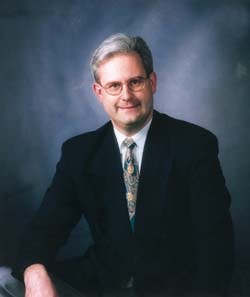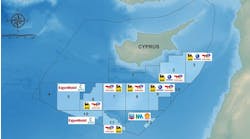Nick Terdre
Contributing Editor
(Left) Asle Solheim, senior vice president for ABB Offshore Technology. (Right) Downstream capability: the PT Chandra Asri ethylene plant in Java uses ABB Lummus Global's licensed technology.
(Left)ABB's EPIC contract for the whole of the Balder subsea facilities is an interesting model for the world market.
The move towards wider-scope contracts in the Far East is one that is welcomed by ABB, an all-round contractor with both upstream and downstream capability.
"The clear drive we see in the Far East towards EPC and EPIC contracting strategies is right in line with our own approach to doing business," says Asle Solheim, senior vice-president at ABB Offshore Technology for international subsea business.
This move can be explained as the upstream market is somewhat fragmented, he says - there are interesting projects but they are scattered over the region. Since oil companies cannot give themselves the luxury of maintaining large operations in each country where they are active, they need a contractual form which can be handled by a small group of people. Another key advantage, in ABB's opinion, is that the EPC strategy is the most economic form of contracting in the offshore sector.
ABB as a group is already well established in the region. Upstream activities are served by its offices in Singapore, Jakarta, Kuala Lumpur and Perth, and manufacturing facilities in Singapore, Shanghai and Betam, Indonesia, and through a joint venture in China. It also offers a wide range of products for the offshore sector, including trees and control systems, umbilicals and cables, valves and chokes, gas turbines, motors, generators, and air treatment systems.
Its strong downstream capability, which sets it apart from most offshore contractors in the region, is based on the engineering and project management expertise of ABB Lummus Global and its power and electrical companies. For many years ABB has licensed technology to the South-East Asian market. The area is now the fastest growing market for petrochemicals and refined products and one in which ABB, in cooperation with local partners, plans to become more active, again targeting turnkey opportunities.
Combining its upstream and downstream capabilities, ABB is well placed to take on so-called "wellhead to wire" projects, the provision of complete energy projects from the production and transport of raw energy to its transformation into electricity for consumption by industry. A number of such projects are under consideration, such as the Malampaya deepwater gas development in the Philippines which is linked to a power plant project. Myanmar and Vietnam also have discovered gas reserves but as yet lack the means of producing, transporting and processing the gas, and of turning it into electricity.
The company has just won a project of this type in Peru. Worth $162 million, it calls for the EPC provision of onshore gas production facilities, a 160-km pipeline, a gas processing and fractionation plant, a 155-MW power station, and a 430-km power transmission line - all within 20 months.
Another string to ABB's bow is its ability to provide financing, either in the form of loans or by taking equity. "We are willing to provide this in certain markets if it is required," says Solheim.
From a technological point of view, the world is becoming a single market-place, Solheim says. But he adds that it is important to be aware of the cultural and political differences, and the different ways of doing business, between the North Sea and the Far East. Another Far East trend welcomed by Solheim is the growing size of subsea projects. "We are potentially seeing some major subsea projects in the next few years in countries like Malaysia, Indonesia, Vietnam and Australia," he says. To date such projects have been few and far between, and modest in scale, though ABB Vetco Gray has supplied several of them: Amoseas' Adex development and Arco's PGE project, both in Indonesia, Alcorn's Linapacam project in the Philippines, Esso's Sea Horse and Tarwin developments in Australia, ONGC's Bombay High in India and a CPC project in Taiwan.
The growing popularity of production ships also favours ABB, which has an impressive track-record with respect to the topsides facilities on FPSOs built at Far Eastern yards. This summer FELS awarded ABB a contract for the EPC provision of the complete topsides for Saga's Varg ship, for which engineering is now being carried out in London. ABB also supplied the marine, subsea and process facilities control systems for Esso's Balder ship, which was originally ordered from FELS by Smedvig. The contractor is also part of the integrated team responsible for the design and construction of the Aasgard FPSO, which is to be built by Hitachi in Japan.
The Varg contract is due to be completed within a year, a very tight schedule, according to Solheim. This is another trend, though not one confined to the Far East, he says. "Lead times are really coming down, and this too is affecting the way we are doing business," he says. "The only way we can do it is through
the use of standardised equipment and functional specifications. We see this happening now in the Far East too." Again ABB is well prepared for this development, as an active participant in the Norsok and CRINE campaigns to reduce project times and costs in Norway and the UK respectively.
Copyright 1996 Offshore. All Rights Reserved.






